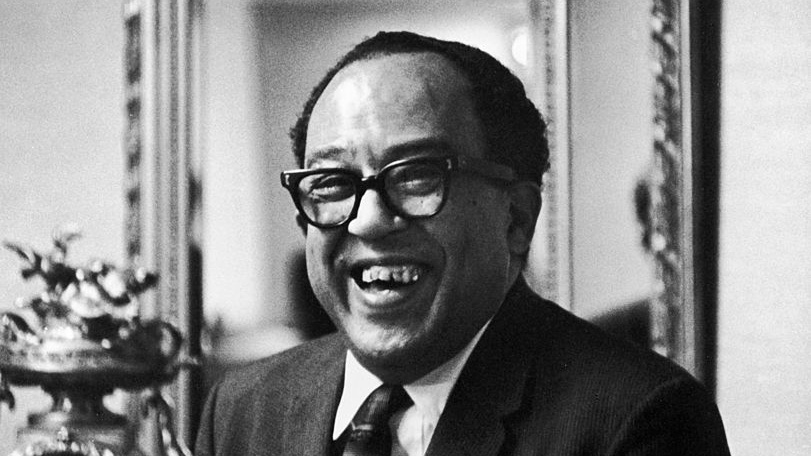Poet Langston Hughes remains essential to Black history and culture. Referring to the Harlem Renaissance as "expression of our individual dark-skinned selves," his columns, songs and poems loudly celebrated Black excellence at a time when adversaries focused on trauma. He wasn't naive to the troubles minorities faced, recognizing that Black people were still undervalued in a supposedly impartial society. In a way, his compositions arguably served as coping mechanisms.
Contemporary lyricists remain indebted to the late Hughes, but thankfully have over a dozen of his published works to study and apply to their everyday lives. Here are five poems that remain just as relevant now as they were when Hughes first released them.
1. Dreams
One of his shorter works, Hughes’ attempt in this two stanza poem is to help the reader recognize the importance of having ambition. Perhaps the brevity of the 1926 project is meant to symbolize a sense of urgency, a reminder that without goals, life is inconsequential.
2. American Heartbreak
Like many poets during his time, a lot of Hughes’ compositions questioned the role of Black Americans in society. If the American Dream was so attainable, then why was it consistently denied to minorities? The Joplin, Missouri native exposes the darker tale of America’s founding in "American Heartbreak," noting that slavery built this country rather than the watered-down stories depicted in history books.
3. Harlem
First published in 1951, "Harlem" tackles the themes of dreams once again. The writer questions what would happen if our aspirations aren’t fulfilled on time. Sadness is another major theme throughout this piece and the narrator concludes that people have attainable goals, but the perils of life prevent them from fulfilling those ambitions. The Black community wants to be free from the irritations of racism, but white supremacy will not allow it.
4. Life is Fine
In this buoyant song, the protagonist contemplates dying, but seemingly appears to have a change of heart after a failed suicide attempt. Through life has been less than kind to him, the narrator relies on his optimistic spirit to help rediscover his purpose. The energetic tune against dark lyrics suggests a larger point that despite pitfalls, with a little perseverance humans are able to come out on top.
5. The Negro Speaks of Rivers
Hughes wrote The Negro Speaks of Rivers 1920 when he was just 17 years old. The composition pays homage to Black history, lauding both victories (construction of the Egyptian pyramids) and pitfalls (slavery). Hughes uses imagery to trace the history of the Black community from Africa to the United States. His tone throughout suggests that despite the significant contributions made by Black individuals, they go unnoticed and even discredited in a society dominated by white people.
Hughes used his popularity and artistry to speak out against troubling incidents during his life. Unabashed in his love for Black culture, his words honored the astounding genius of influencers in a marginalized community during a period time where the celebration of Black innovation was largely unaccepted.
